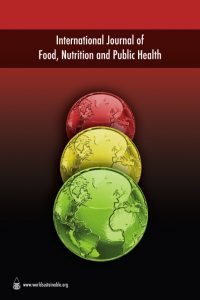Knowledge, Attitude and Practice Regarding HIV/AIDS among Secondary School Students in Arba Minch Town, Southern Ethiopia, Nuredin N. Azmach
Nuredin Nassir Azmach
Arba Minch University, Arba Minch, Ethiopia
Background: Worldwide HIV/AIDS has created an enormous challenge to the survival of mankind and many populations continue to be left behind. In particular, young people aged between 10–24 years are not only at high risk of contracting HIV infection, but already constitute a significant percentage of people living with HIV/AIDS. Globally, two-thirds of young people do not have the correct and comprehensive knowledge of HIV. The main objective of this study was to assess knowledge, attitude, and practice regarding HIV/AIDS among students in Arba Minch Town, Southern Ethiopia.
Methods: A cross-sectional study was conducted among secondary school students. The collected data were entered into SPSS version 20 for data analysis. Binary logistic regressions analysis was applied to identify the significant factors on the knowledge, attitude, and practice (KAP) regarding HIV/AIDS. A statistical significance test was declared at p-value <0.05 and odds ratios (OR) with 95% confidence intervals (CI).
Results: Among the 264 study participants, over 80 of students had knowledge and a positive attitude towards HIV/AIDS. Students age (>20 years) (OR53.4; 95% CI:1.18, 9.84) and mother’s education (diploma and above) (OR55.6; 95% CI:1.52, 20.35) were significantly associated with students’ knowledge on HIV/AIDS transmission and prevention, and students from families with a high monthly income (OR53.9; 95% CI:1.16, 12.88) was directly associated with a positive attitude towards HIV/AIDS and patients with HIV/AIDS. About 29% of students have at least one risk behaviour related to unprotected sexual exposure and students age (15 years) (OR53.8; 95% CI:1.32, 10.62) was significantly associated with students that practice risky behaviour on HIV/AIDS.
Conclusion: Knowledge of HIV/AIDS prevention methods as low, and more risky behaviour was observed in males and those that abuse alcohol and/or drugs. Students’ age variation, and family monthly income and education level were major contributing factors on students KAP on HIV/AIDS. Thus, HIV/AIDS health education efforts should be intensified to change attitude and behaviours among students.
Keywords: HIV/AIDS; adolescents; knowledge; attitude; practice; risk behaviours; Ethiopia
Reference to this paper should be made as follows: N. N. Azmach (2018) ‘Knowledge, Attitude and Practice Regarding HIV/AIDS among Secondary School Students in Arba Minch Town, Southern Ethiopia’, Int. J. Food, Nutrition and Public Health, Vol. 10, No. 1, pp. 02–15.
[embedyt] https://www.youtube.com/watch?v=r-sS9NUk5JA[/embedyt]
